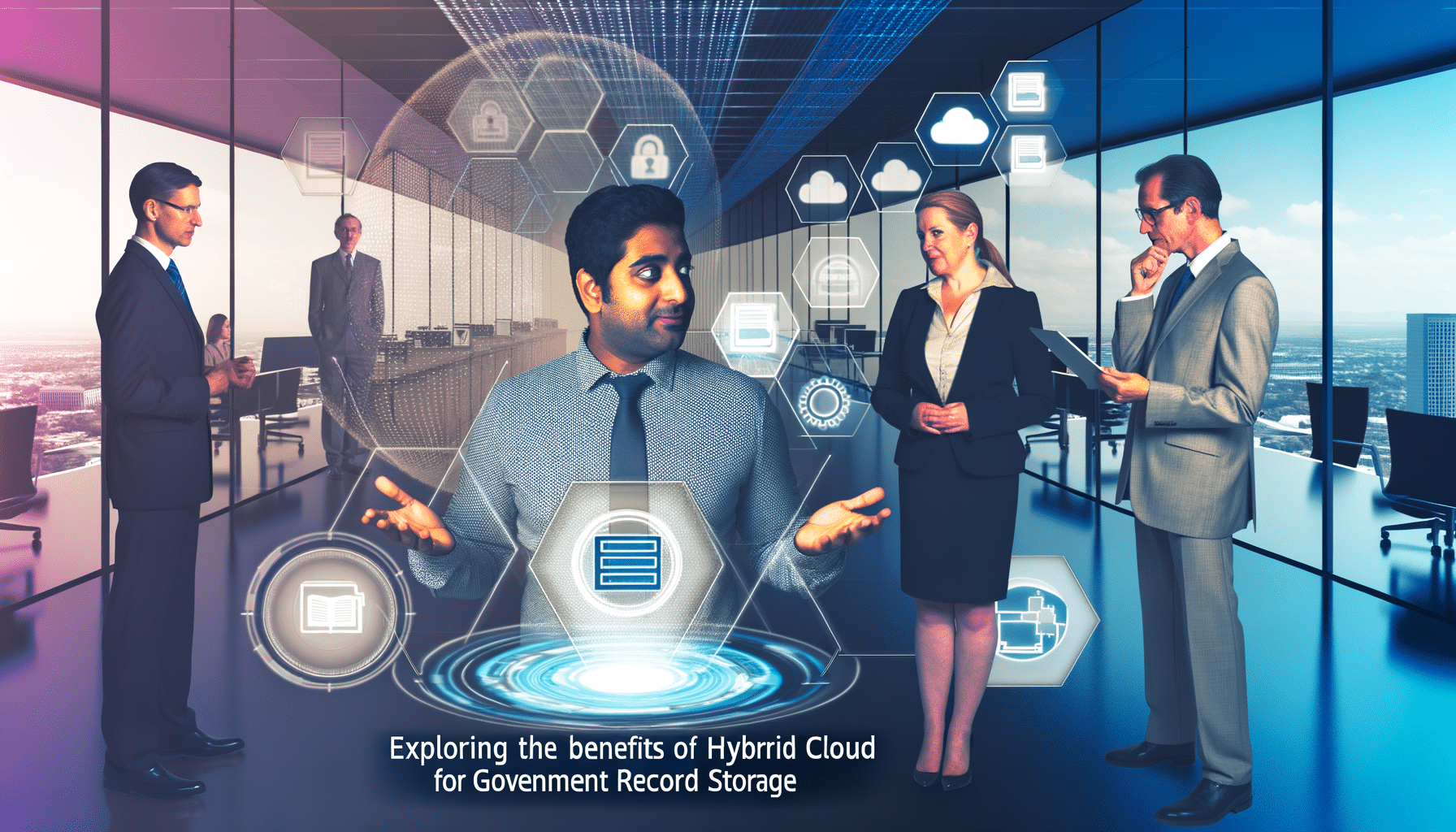Unlocking the Power of Hybrid Cloud for Government Record Storage
As someone deeply involved in the intersection of technology and business, I’ve seen firsthand how government bodies often grapple with the challenge of managing vast volumes of records. The digital age demands that governments ensure record accessibility, security, and compliance while managing costs and resources efficiently. Enter the hybrid cloud. In this article, I’ll delve into the myriad benefits of adopting a hybrid cloud approach for government record storage, leveraging my insights as the founder of RecordsKeeper.AI and my experience in the tech industry.
Understanding the Hybrid Cloud Solution
When we talk about the hybrid cloud, we are referring to a computing environment that blends public and private cloud services, allowing data and applications to be shared between them. For governments handling sensitive data like citizens’ personal information, this model combines the scalability of public cloud services with the security of private infrastructure.
Flexibility and Scalability
Governments frequently face fluctuating needs in data storage. A hybrid cloud approach provides the ability to scale storage requirements up or down based on demand. During high-demand periods, such as tax season or election times, governments can tap into additional public cloud resources, ensuring seamless service delivery without the need for expensive, permanent infrastructure expansions.
Cost Efficiency
Public cloud resources are typically priced on a pay-as-you-go basis, allowing government departments to better manage their budgets by minimizing the cost of unused capacity. By maintaining a core set of essential data on private clouds while leveraging public clouds for less sensitive information, costs are optimized without compromising functionality.
Enhancing Security with Hybrid Cloud
Security is always a top concern when dealing with governmental data. Traditional data centers can be resource-intensive to secure; the hybrid cloud offers a compelling advantage here.
Data Segregation
Sensitive data remains in private clouds, minimizing the risk of breaches. This segregation ensures that the most critical information does not leave the secure confines of a government-operated facility, while less critical workloads benefit from the robust security measures of public cloud infrastructures.
Advanced Threat Protection
Today’s cloud providers invest significantly in cybersecurity, often deploying machine learning algorithms to predict and neutralize threats before they can impact operations. Government entities can benefit from these advanced protective measures in the public cloud while applying their bespoke security protocols in private environments.
Ensuring Compliance with Regulatory Requirements
Government records are bound by strict compliance standards. In my experience, one of the hybrid cloud’s most valuable attributes is its focus on facilitating compliance.
Audit and Compliance Trails
Hybrid cloud platforms offer thorough audit logging and reporting functionalities. These features enable government agencies to demonstrate compliance with regulations such as GDPR, HIPAA, and others, ensuring that every interaction with data is recorded and verifiable.
Geographical Compliance
By selecting where data is stored (whether in a specific public cloud data center or a local private facility), government agencies can meet geographical data sovereignty requirements. This capability is crucial for protecting national interests and adhering to local regulatory mandates.
Interworking with Our Platform: RecordsKeeper.AI
At RecordsKeeper.AI, we understand the need for efficient and secure record management better than most. Our platform complements hybrid cloud strategies by focusing on automated categorization, secure data rooms, and comprehensive compliance management. Leveraging blockchain technology, we provide immutable, tamper-proof records that enhance trust and governance. Integrating with hybrid cloud solutions helps us provide government departments with the tools they need for modern, robust, and compliant record management.
Conclusion: The Road Ahead
As governments look to modernize their IT infrastructure, the hybrid cloud offers an irresistible combination of flexibility, cost savings, and security. For legal, finance, and compliance heads tasked with overseeing record-keeping, adopting a hybrid approach not only makes strategic sense but also empowers them with a competitive edge in digital governance. I invite you to explore further how RecordsKeeper.AI can enhance your record management capabilities and to follow my journey as I continue to share insights on leveraging technology to meet modern organizational challenges.








